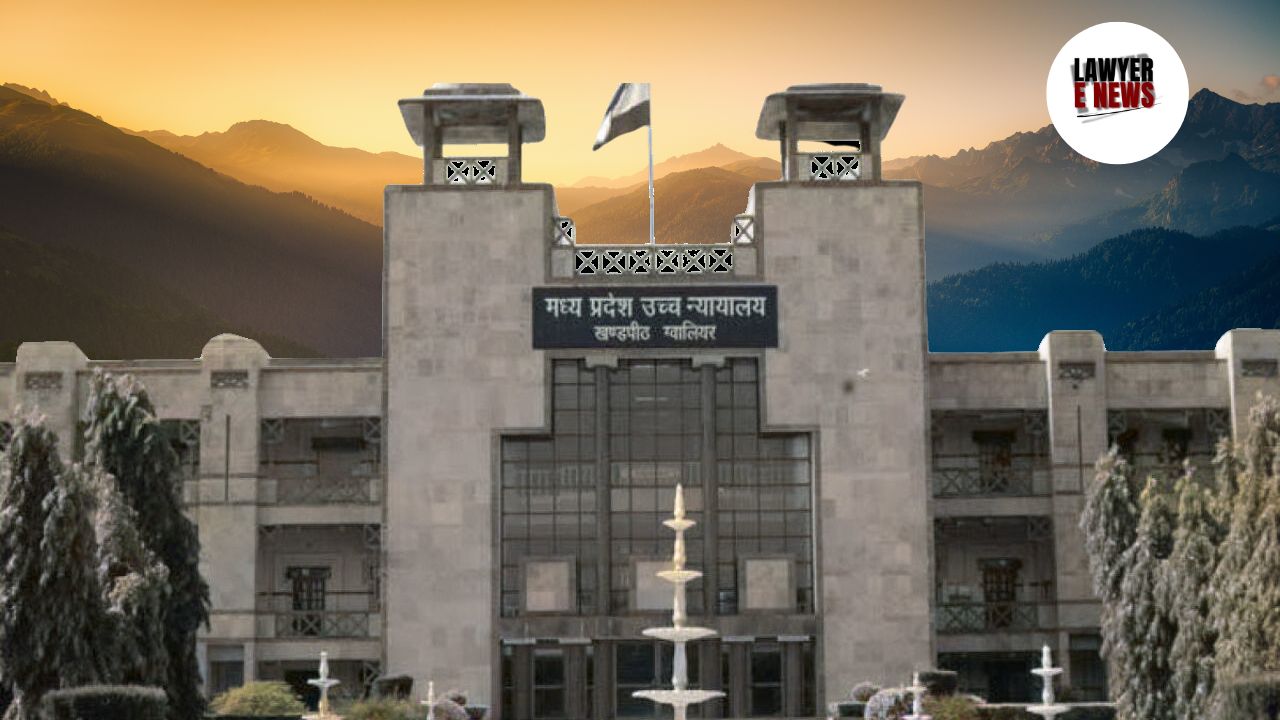-
by Admin
15 February 2026 5:35 AM



Madhya Pradesh High Court quashed proceedings under Section 138 of the Negotiable Instruments Act (N.I. Act) against Surendra Kumar Patwa, due to an interim moratorium imposed under Section 96 of the Insolvency and Bankruptcy Code, 2016 (IBC). Justice Sanjay Dwivedi held that the moratorium under Section 96 IBC extends to quasi-criminal proceedings involving debts, including cheque bounce cases, thereby preventing continued prosecution of Patwa under the N.I. Act during the moratorium period.
The petitioner, Surendra Kumar Patwa, a director of a company facing insolvency proceedings, sought a stay on proceedings under Section 138 of the N.I. Act initiated by the respondent, Dharmendra Vohra, due to a dishonored cheque. Patwa argued that, pursuant to Section 96 of the IBC, an interim moratorium had been imposed by the National Company Law Tribunal (NCLT), Indore, which stayed "any legal action or proceeding" in respect of his debts.
The Judicial Magistrate, as well as the Additional Sessions Judge, had rejected Patwa’s request, asserting that Section 138 proceedings under the N.I. Act were criminal in nature and thus fell outside the moratorium imposed by Section 96 of the IBC. Patwa challenged these orders before the High Court, asserting that the quasi-criminal nature of Section 138 proceedings meant they were covered by the moratorium under Section 96.
The key issue before the High Court was whether the interim moratorium under Section 96 of the IBC, which applies to all debts of an individual undergoing insolvency proceedings, extends to quasi-criminal proceedings under Section 138 of the N.I. Act.
The Court, citing P. Mohanraj v. Shah Brothers Ispat Pvt. Ltd. (2021), noted that Section 96 applies broadly to "any legal action or proceeding" concerning debts, including those indirectly related to debt recovery, such as Section 138 proceedings.
Distinction between Moratoriums under Section 14 and Section 96 of IBC
The Court clarified that Section 14 IBC, which applies to corporate debtors, does not extend to personal guarantors or directors. However, Section 96 IBC is intended to cover individual insolvency proceedings and includes a wider range of actions against personal debtors.
Referring to Ajay Kumar Radheyshyam Goenka v. Tourism Finance Corporation of India Ltd. (2023), the Court highlighted the distinct purposes of Section 14 and Section 96, explaining that Section 96 provides broader protection for individuals, including quasi-criminal proceedings under the N.I. Act.
Application of Moratorium to Quasi-Criminal Proceedings under Section 138 of the N.I. Act
The Court examined whether Section 138 N.I. Act proceedings, often considered quasi-criminal, should be stayed under Section 96. Drawing on P. Mohanraj and other cases, the Court reasoned that since the proceedings are directly related to debt recovery, they fall within the scope of the interim moratorium.
Justice Dwivedi noted, "Given that Section 96 stays any legal action in respect of debts, including quasi-criminal proceedings under Section 138 of the N.I. Act, the continued prosecution of the petitioner is legally unfounded during the moratorium period."
The Madhya Pradesh High Court allowed the petition, setting aside the lower courts' orders and staying the Section 138 proceedings against Patwa. The Court underscored that the interim moratorium under Section 96 IBC serves to protect the debtor from all legal proceedings related to debts, including those under Section 138 of the N.I. Act, until the insolvency process is resolved.
"The purpose of Section 96 IBC is to provide a debtor with relief from any legal proceedings related to debts during the insolvency resolution process, including quasi-criminal proceedings under Section 138 of the N.I. Act."
"The interim moratorium under Section 96 IBC extends to all debt-related actions, offering individuals facing insolvency protection from civil and quasi-criminal proceedings alike."
The High Court’s decision reinforces the comprehensive scope of the interim moratorium under Section 96 of the IBC, emphasizing its applicability to quasi-criminal proceedings such as cheque bounce cases. This ruling upholds the principle that insolvency proceedings are meant to shield debtors from legal actions that could interfere with their financial reorganization.
Date of Decision: October 25, 2024
Surendra Kumar Patwa v. Dharmendra Vohra
